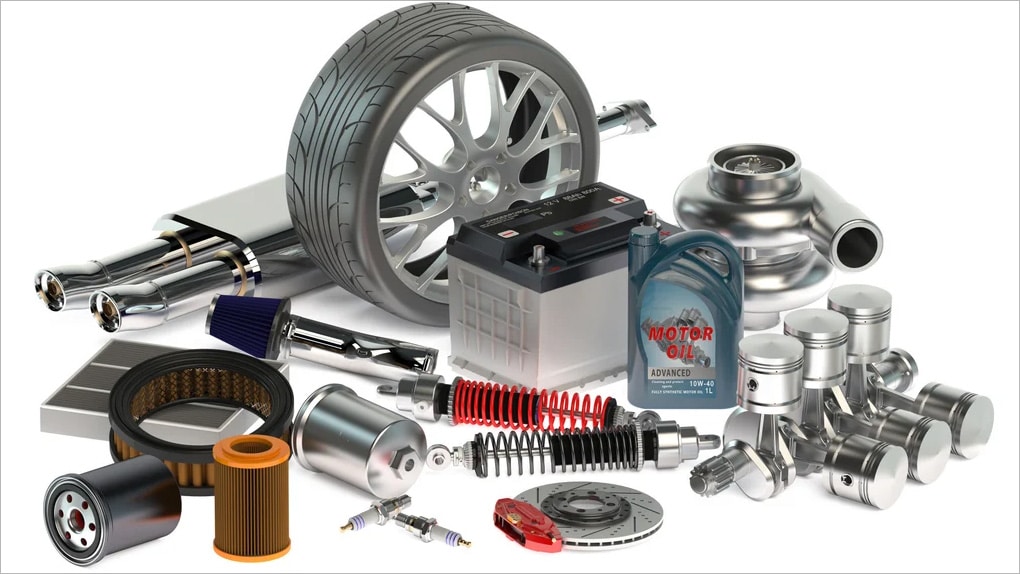In recent years, the United States has intensified its anti-dumping and countervailing duty (CVD) measures on certain automotive parts imported from China. For U.S.-based automotive importers and freight forwarders, understanding these regulations and knowing how to mitigate associated risks can be essential to maintaining smooth supply chains and competitive pricing. Here, we’ll break down key affected auto parts and offer strategic insights for importers to navigate these restrictions effectively.

1. Key Automotive Parts Under U.S. Anti-Dumping Measures
Some of the main categories of Chinese auto parts currently facing anti-dumping and CVD measures include:
- Truck and Bus Tires: Since 2017, the U.S. has imposed anti-dumping and countervailing duties on truck and bus tires imported from China. This measure was reviewed in 2024 and is still in place, reflecting continued concern over the potential impact on domestic manufacturersSource from Tencent News
.
- Brake Drums: In 2024, the U.S. initiated an anti-dumping and CVD investigation on specific brake drums from China and Turkey, particularly those with a weight of over 50 pounds and diameters between 14.75 to 16.6 inches. This measure aims to protect U.S. manufacturers from what is viewed as unfairly priced importsSource from CCCME
.
- Steel Wheels: Chinese-manufactured steel wheels, specifically those with diameters of 12-16.5 inches, are also subject to anti-dumping duties due to similar concerns about their impact on U.S. market stabilitySource from Deftfulfillment Support Center 德服海外仓帮助中心
.
2. Understanding Anti-Dumping Measures and Their Impact on Costs
Anti-dumping duties are designed to counteract products sold below market value in the U.S., aiming to protect domestic industries from unfair competition. The resulting tariffs can significantly increase the cost of importing these items, impacting final prices and potentially reducing profit margins for U.S. importers and retailers. Staying informed about tariff rates and changes in trade policies can help buyers better forecast and manage their expenses.
3. Strategies for Importers to Mitigate Risk
As a U.S. buyer, there are a few strategies you can employ to minimize risks associated with anti-dumping tariffs:
- Diversify Your Supply Chain: Consider sourcing parts from alternative countries that are not subject to U.S. tariffs. Southeast Asian countries, for instance, may offer competitively priced auto parts without the same tariff burdens.
- Work with a Knowledgeable Freight Forwarder: A freight forwarder experienced in navigating U.S. import regulations can be invaluable. They can help with documentation, ensuring that imports are classified correctly and not inadvertently subject to tariffs.
- Utilize Bonded Warehouses: By storing goods in bonded warehouses, you can defer duties until products are moved to their final destination, potentially allowing time for policy changes or adjustments in sourcing strategies.
- Stay Updated on Trade Policy: Trade policies can change rapidly. Keeping up-to-date on U.S.-China trade relations and relevant rulings by the U.S. International Trade Commission can help you anticipate changes and make timely adjustments.
4. How Freight Forwarders Can Assist
Freight forwarders play a critical role in the import process, especially for products subject to stringent regulations like anti-dumping measures. They can assist by:
- Ensuring Proper Classification: Correct classification can help avoid unnecessary tariffs. Freight forwarders with expertise in handling automotive parts are familiar with the nuances of U.S. Customs codes and requirements.
- Providing Real-Time Compliance Updates: Freight forwarders can offer updates on changing regulations and help plan for potential future tariffs, reducing surprises in the import process.
- Optimizing Shipment Routes: By selecting optimal shipping routes and leveraging bonded warehouse options, freight forwarders can help importers avoid or defer duties and minimize total landed costs.
Final Thoughts
For U.S. automotive importers, navigating anti-dumping regulations on Chinese parts can be challenging but manageable with the right strategies and support. By understanding which parts are subject to tariffs, adopting cost-saving practices, and working closely with knowledgeable freight forwarders, importers can continue to source from global suppliers without compromising their bottom line.
If you have questions on how to adjust your shipping strategy in light of these restrictions, reach out to Zcyt Logistics. We specialize in global cargo transportation and can help you manage the complexities of international trade compliance and logistics.
